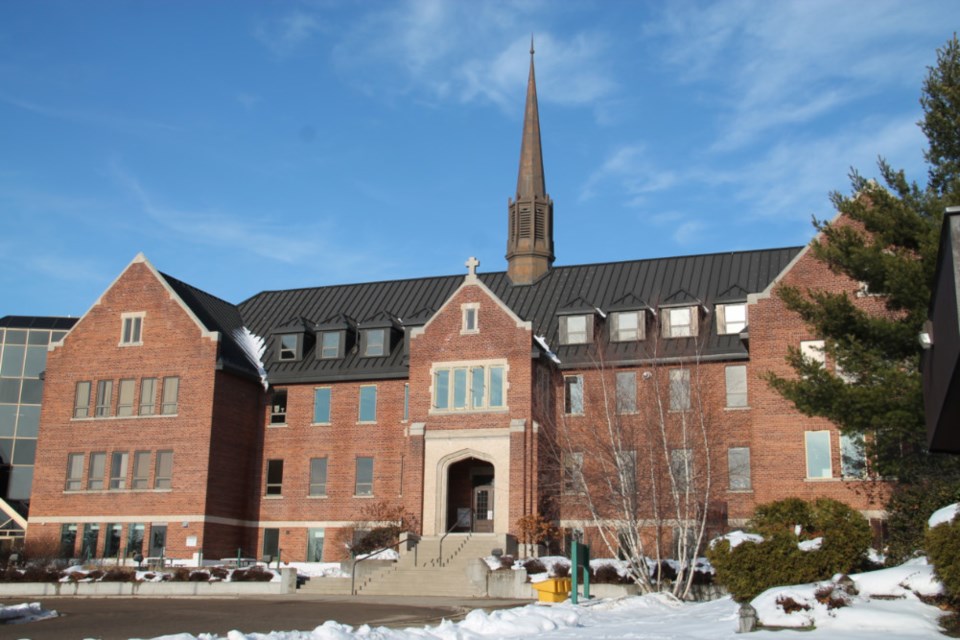One of the highlights from the latest Algoma University board of governors meeting - held virtually Thursday - was an overview of the school’s academic plan for 2021 to 2026.
Priorities over the next five years will include strategic introduction of new programming such as master’s degrees and development of academic programs aligned with the Ontario Mental Health and Addictions Research and Training Institute (OMHARTI).
With campuses in Sault Ste. Marie, Brampton and Timmins, the academic plan will mix academics, experiential learning, academic support for students, more opportunities for eLearning and more support for international study and work abroad.
Asima Vezina, Algoma University president and vice-chancellor - in her monthly report to the board - stated 2021-22 enrolment is on track to exceed 3,000 full-time equivalent students across Algoma’s three campuses, putting the institution three years ahead in achieving that milestone.
A domestic student enrolment increase of 42 per cent at Algoma’s Brampton campus has helped boost overall enrolment at that campus to over 1,300 students this fall.
“Enrolment is split almost equally between the Brampton and Sault Ste. Marie campuses...approximately 60 per cent of students enrolled in our undergrad/degree programs are domestic with approximately 40 per cent of degree students coming from international markets,” stated Brian Leahy, Algoma University spokesperson in an email.
“Given that we are currently delivering two programs in Timmins (Social Work and Community Development), this accounts for a very small percentage of the overall enrolment picture (this semester for example, there are approximately 40 students enrolled in programs at our Timmins campus).”
“A more detailed final enrolment update with final figures for the 2021-22 academic year will be released in the winter term,” Leahy wrote.
In a follow up email to SooToday Friday, Donna Rogers, Algoma University vice president, academic and research, stated “a feasibility study is now underway, being carried out by MGAC, an international firm with significant experience in health, particularly in mental health and addictions” in regard to a bricks and mortar site for the proposed Ontario Mental Health and Addictions Research and Training Institute (OMHARTI).
MGAC is working with Algoma University, Sault Area Hospital, Shingwauk Kinoomaage Gamig, Northern Ontario School of Medicine and Sault College in planning for the mental health and addictions research institute.
A future expansion of the Convergence Centre (Sault Ste. Marie campus) will have more programming for students in health sciences, OMHARTI to be an important part of that.
The university has discussed its vision for the institute with several provincial cabinet ministers on site at Algoma over the last two years, though Rogers said “no formal requests for the funding have been made to the government and no commitments from the government are in place at this time.”
